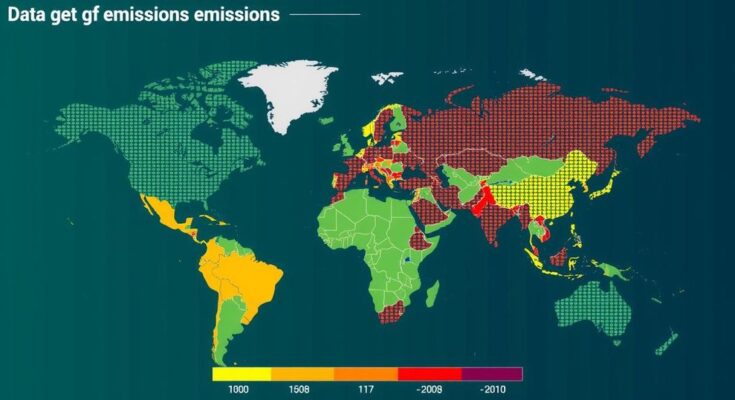The World Meteorological Organization has reported alarming levels of greenhouse gases, primarily carbon dioxide, in the atmosphere due to human activity, particularly fossil fuel emissions. With global temperatures having risen approximately 1.2 degrees Celsius since preindustrial times, the urgency for action is heightened in light of severe wildfires and other extreme weather events. The upcoming U.N. climate negotiations will be pivotal in addressing these critical environmental concerns as warming persists at unprecedented rates, adversely affecting ecosystems and human health.
In the wake of unprecedented wildfires, greenhouse gas levels have surged, indicating a potential cycle of exacerbating climate change, as noted by the United Nations weather agency ahead of the imminent climate negotiations. The World Meteorological Organization (WMO) revealed in its latest Greenhouse Gas Bulletin that atmospheric concentrations of carbon dioxide have reached levels akin to those of 2-3 million years ago, corresponding with significantly higher historical temperatures and elevated sea levels. Current emissions from fossil fuels and cement production outpace the natural absorption capacity of oceans and forests, leading to an accumulation of greenhouse gases that persist in the atmosphere for prolonged periods. Ko Barrett, the deputy secretary general of the WMO, emphasized the significance of even minor temperature rises, stating, “Every fraction of a degree of temperature increase matters.” She elaborated on the cascading consequences, including accelerated glacial retreat, heightened sea-level rise, and adverse impacts on biodiversity and human health. The upcoming 29th U.N. climate negotiations in Azerbaijan will bring together nations to address the urgent need to curb temperature increases and limit reliance on fossil fuels, a challenge compounded by alarming data showing that global carbon dioxide concentration has reached 420 parts per million, the highest rate recorded in human history. Extreme climatic events, particularly rampant wildfires in Canada and Australia, have contributed to the persistent high emissions noted this year. The WMO’s report also cautioned that the shift from a prolonged La Nina phase to a warmer El Nino phenomenon could further reduce the capacity of forests to absorb carbon, potentially leading to greater carbon dioxide retention in the atmosphere. Thus, the interdependence between rising temperatures and the environment’s ability to mitigate greenhouse gases poses a critical threat. The WMO warned: “These climate feedbacks are critical concerns to societies worldwide.”
The article highlights the critical environmental situation regarding greenhouse gas emissions in light of climate negotiations set to take place imminently. It discusses the global rise in carbon dioxide levels and its implications for climate stability, drawing attention to the scientific consensus regarding the dangers of continued reliance on fossil fuels and the urgent necessity for international cooperation to address climate change.
In summary, the rising levels of greenhouse gases—significantly influenced by human activities—pose severe risks not only to ecosystems and biodiversity but also to global health and economies. As documented by the WMO, addressing these issues is imperative, particularly in the context of the forthcoming U.N. climate negotiations. Immediate action to limit fossil fuel reliance and enhance natural carbon sinks is crucial to mitigate the severe impacts anticipated from climate change. The interconnectedness of temperature increases and environmental responses necessitates a comprehensive and urgent global approach to these pressing challenges.
Original Source: www.rfa.org




